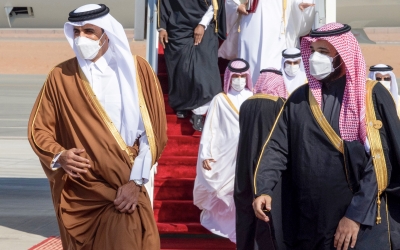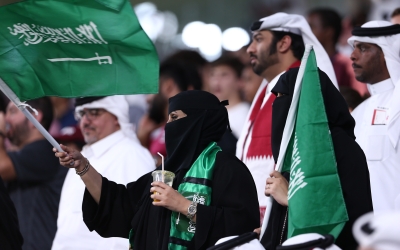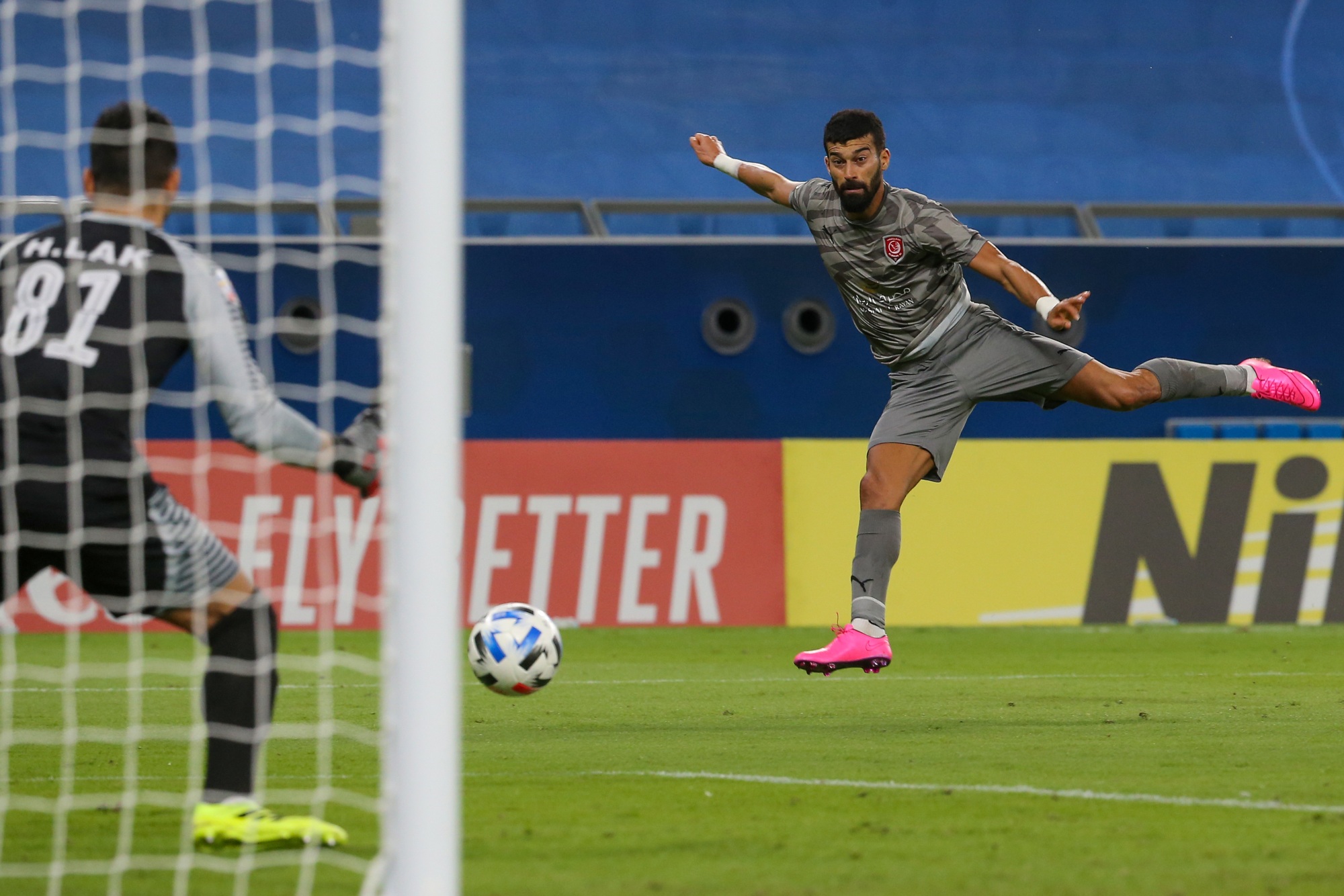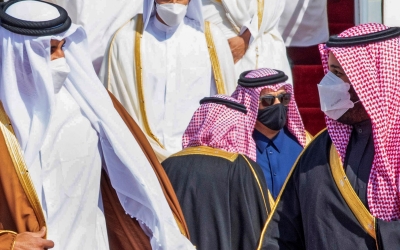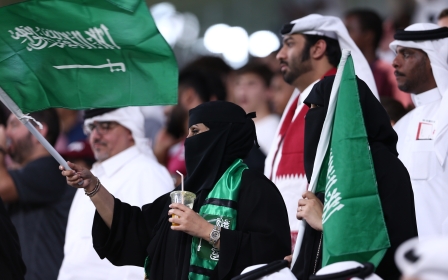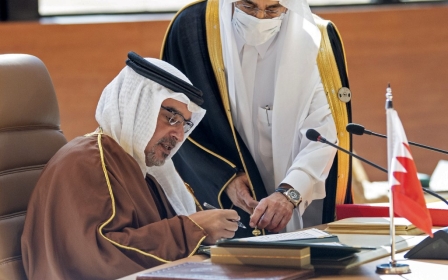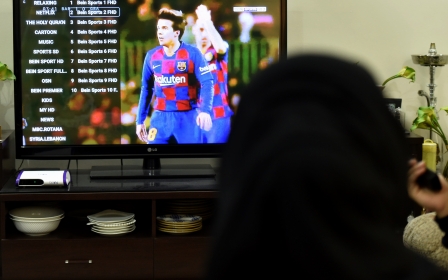As Qatar blockade ends, football diplomacy with Egypt begins
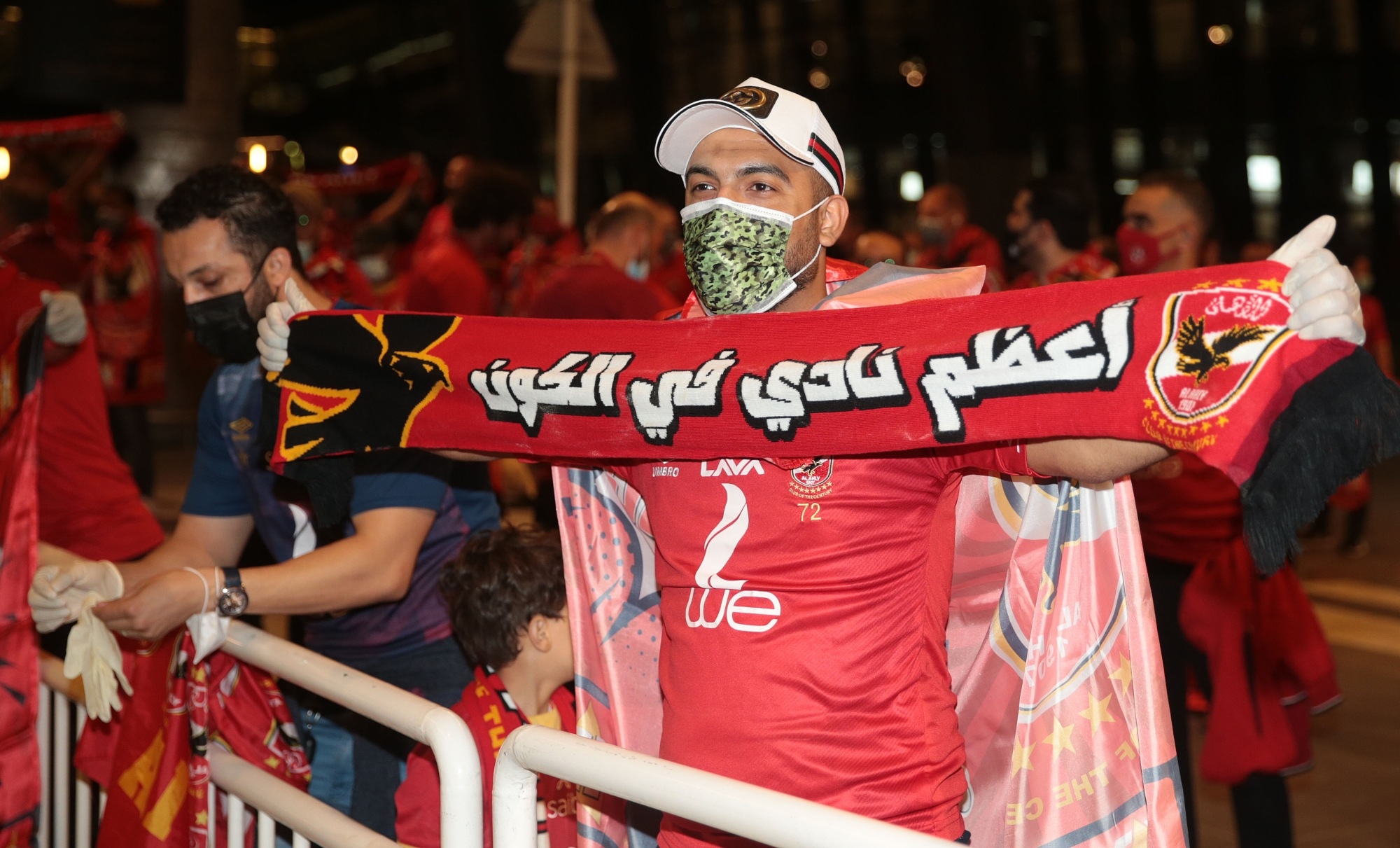
An Egyptian team will participate in the 18th edition of the International Federation of Association Football (Fifa) Club World Cup, which will be held in Qatar between 4 and 11 February, possibly bringing Cairo and Doha closer together through football.
Egypt, Saudi Arabia, the United Arab Emirates and Bahrain ended their joint blockade of Qatar in January, signing a unity deal after three-and-a-half years.
Six teams will participate in the tournament, which brings together the winners of the six continental confederations as well as the host nation's league champions.
The team participating from Qatar is Al-Duhail Sports Club, who will meet Egyptian champions Al Ahly on Thursday.
The tournament comes as Qatar races against time to finalise preparations for the 2022 Fifa World Cup.
Coming together
The participation by the Egyptian team in the tournament in Qatar comes only days after Cairo and Doha took a series of measures to mend fences, following more than three years of tension.
Cairo, Riyadh, Abu Dhabi and Manama had cut off trade and diplomatic ties with Doha in June 2017, after accusing Qatar of interfering in their internal affairs - accusations the latter denied.
The countries resumed diplomatic ties on 21 January, a few days after Egypt resumed flights to Qatar, after they had signed a document during the Gulf Cooperation Council summit in al-Ula, Saudi Arabia, on 5 January. The document opened the door for reconciliation between the four states and Qatar.
In Egypt, the measures taken by Cairo and Doha for the normalisation of relations are seen as a small detail in the larger picture of changing conditions in the region.
"They are part of new arrangements in the region, ones that are backed by the new administration in the US," Tarek Fahmi, a political science professor at Cairo University, told Middle East Eye. "There is an urgent need for ending regional rifts, given current threats to regional security."
Football politics
Football has always been a political tool in Egypt and in the region - sometimes bringing people together, sometimes pushing them apart.
Relations were spoiled for many months between Egypt and Algeria after fans from the two countries clashed violently during a match between their national teams in Omdurman, Sudan, in 2009.
In February 2012, violence during a match in the Suez Canal city of Port Said left dozens of people dead at a time of high tension between football fans and the then-ruling Egyptian army council.
Football fans - also known as ultras - were also at the heart of the uprising against longstanding president Hosni Mubarak in 2011.
Mubarak and his two sons had sponsored the Egyptian national team for many years, knowing the effect football had on Egyptians, and especially on the young generation, who were growing detached from the ageing president during his last years in power.
Current Egyptian President Abdel Fattah el-Sisi - who came to power in 2013 after a coup toppled democratically elected Mohamed Morsi - is apparently mimicking the Mubarak model as far as sports are concerned.
Apart from sponsoring sports teams, he promotes his country as a venue suitable for hosting major sports events.
In 2019, Egypt hosted the Africa Cup of Nations, the top football event on the African continent.
Last month, Egypt hosted the World Men’s Handball Championship, in spite of the Covid-19 pandemic.
Sisi's administration has also invested billions of dollars in the modernisation of the nation's stadiums and sports facilities - despite criticism that the money spent on such flashy projects could be better used on the country’s healthcare or social safety net.
The tense political situation between Egypt and Qatar in the past three years has taken its toll on sports relations between them.
In early 2020, Egyptian club Zamalek confirmed that it would not travel to Qatar to meet African Champions League holders Esperance of Tunisia in February's African Super Cup.
However, there are hopes in Cairo that the Fifa Club World Cup will bring Egyptians and Qataris together, following these years of tension.
"Relations between peoples in Egypt and Qatar have not been affected by political tensions between the two countries," Nadia Helmi, a professor of political science at Beni-Suef University, told MEE. "Football is fast becoming part of any country's soft power, possessing the capability of mending fences and creating favourable mental images."
Serious preparations
Seven teams qualified for the Club World Cup tournament, including Auckland City of New Zealand. However, Auckland could not make it to Qatar due to Covid-19 quarantine measures in New Zealand, bringing the number of teams down to six. The first round match, scheduled for 1 February, was cancelled, pushing Al-Duhail automatically to the second round against Al Ahly on 4 February.
'Football is fast becoming part of any country's soft power'
- Nadia Helmi, Beni-Suef University professor
Al-Duhail has already welcomed its Egyptian guests, as striker Ali Afif expressed hope that either his team or Al Ahly would qualify for the final stages of the competition.
The Qatari team is making active preparations for the Egyptian team, its French manager Sabri Lamouchi said.
The team's manager, Ismail Ahmed, also said Al-Duhail would work with focus to reflect progress in Qatari football.
Al Ahly are making strong preparations too. The team's manager, Sayed Abdel Hafez, said on 22 January that the team would take all its players to the championship in Qatar.
This is the first time Al-Duhail has played in the Club World Cup, whereas Al Ahly, also known as the Red Devils, is playing in the tournament for the sixth time.
The team winning the 4 February match will qualify for the semi-finals.
"Al Ahly has a good chance to beat Al-Duhail and qualify for the semi-finals," leading Egyptian sports commentator Hassan al-Mistkawi told MEE. "It is the strongest team in Africa, containing very proficient players within its ranks."
Difficult questions
Egypt is hopeful that its fledgling amity with Qatar will ripen in the coming period.
On 27 January, Egyptian Foreign Minister Sameh Shoukry said he expected a change to happen in relations between his country and Qatar.
He expressed hopes at the House of Representatives, the lower chamber of parliament, that signatories to the al-Ula declaration would abide by its terms.
Earlier, some MPs had lashed out at Qatari media, and especially news channel Al Jazeera, for maintaining an editorial line critical of the Egyptian government.
Nevertheless, House Committee on Foreign Relations head Karim Darwish said Egypt harboured respect for all countries.
"This is especially true in the case of fellow Arab countries," Darwish said.
Other members of the committee said it would take more than a sports competition to break the ice between Cairo and Doha.
"The critical line of Qatari media on Egypt is an important issue," Wasim Fakhri, a member of the Committee on Foreign Relations, told MEE. "We have hopes that the two countries can overcome their differences and abide by their understandings in al-Ula."
Middle East Eye delivers independent and unrivalled coverage and analysis of the Middle East, North Africa and beyond. To learn more about republishing this content and the associated fees, please fill out this form. More about MEE can be found here.


